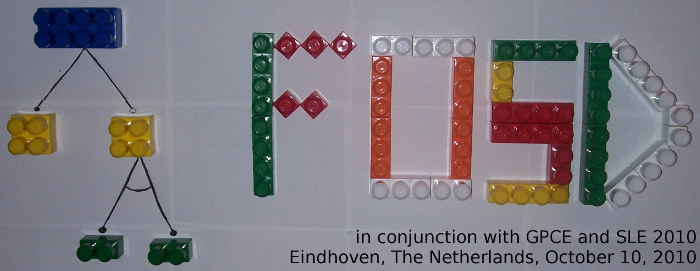

Feature orientation is an emerging paradigm of software development. It supports the largely automatic generation of large software systems from a set of units of functionality called features. The key idea of feature-oriented software development (FOSD) is to emphasize the similarities of a family of software systems for a given application domain (e.g., database systems, banking software, text processing systems) with the goal of reusing software artifacts among the family members. Features distinguish different members of the family. A challenge in FOSD is that a feature does not map cleanly to an isolated module of code. Rather it may affect (''cut across'') many components/documents of a software system. Research on FOSD has shown that the concept of features pervades all phases of the software life cycle and requires a proper treatment in terms of analysis, design, and programming techniques, methods, languages, and tools, as well as formalisms and theory.
Christian Prehofer, who coined the term Feature-Oriented Programming in 1997, agreed to give a keynote.
"Feature-Oriented Programming: Back to the Future"
The main goal of the 2nd International Workshop on Feature-Oriented Software Development (FOSD) is to foster and strengthen the collaboration between the researchers who work in the field of FOSD or in the related fields of software product lines, service-oriented architecture, and model-driven engineering. The focus of FOSD'10 will be on discussions, rather than on presenting ideas only, so the format of the workshop slightly differs from FOSD'09.
The workshop is scheduled for a full day and will be a highly interactive event. The workshop begins with a keynote by the FOSD pioneer Christian Prehofer. Then, the accepted papers are presented in sessions. Each session will be organized such that discussions among presenters of papers, discussants, and other participants are stimulated. Typically, after a paper is presented, it is immediately discussed by two pre-assigned discussants, which moderate the discussion, encourage questions from all participants, and also ask questions themselves. Each session is closed by a general discussion of all papers presented in the session.
We invite submissions 4 to 8 pages long in ACM proceedings format. The papers will be reviewed by at least three members of the program committee and the organization committee. The authors will be notified about acceptance before the early registration deadline. Accepted papers will be posted on the website and published in the ACM Digital Library.
We will use the easychair paper submission/review system. Submissions should be uploaded via the following URL:
http://www.easychair.org/conferences/?conf=fosd10
For questions, please contact Christian Kästner.
In particular, we are looking for contributions in the following topics:
- Programming language and tool support for FOSD
- Software product lines and program families
- Feature and variability modeling
- Formal methods and theory for FOSD
- Type systems and formal semantics of FOSD languages
- Composition-based and annotation-based FOSD
- Feature interaction, mining, and refactoring
- Multi-dimensional separation of concerns
- Generative programming and automatic programming
- Model-driven development and service-oriented architecture
Online versions of the call for papers are available in PDF and plain text.
Paper submission: July 30th, 2010 August 3rd, 2010 (extended due to some requests)
Notification: August 27th, 2010
Workshop: October 10th, 2010
- Sven Apel (University of Passau, DE)
- Don Batory (University of Texas at Austin, US)
- Krzysztof Czarnecki (University of Waterloo, CA)
- Florian Heidenreich (Technical University of Dresden, DE)&mdashPC co-chair
- Christian Kästner (University of Marburg, DE)—corresponding organizer
- Oscar Nierstrasz (University of Berne, CH)
- Vander Alves (University of Brasilia, BR)
- Danilo Beuche (pure-systems, DE)
- Kathi Fisler (Worcester Polytechnic Institute, US)
- Patrick Heymans (University of Namur, BE)
- Kyo-Chul Kang (POSTECH, KR)
- Thomas Leich (Metop Research Center, DE)
- Christian Lengauer (University of Passau, DE)
- Roberto Lopez-Herrejon (University of Linz, AT)
- Neil Loughran (SINTEF, NO)
- Klaus Ostermann (University of Marburg, DE)
- Ina Schaefer (Chalmers University of Technology, SE)
- Christine Schwanninger (Siemens, DE)
- Thomas Thüm (University of Magdeburg, DE)&mdashPC co-chair
- Salvador Trujillo (IKERLAN Research Centre, ES)